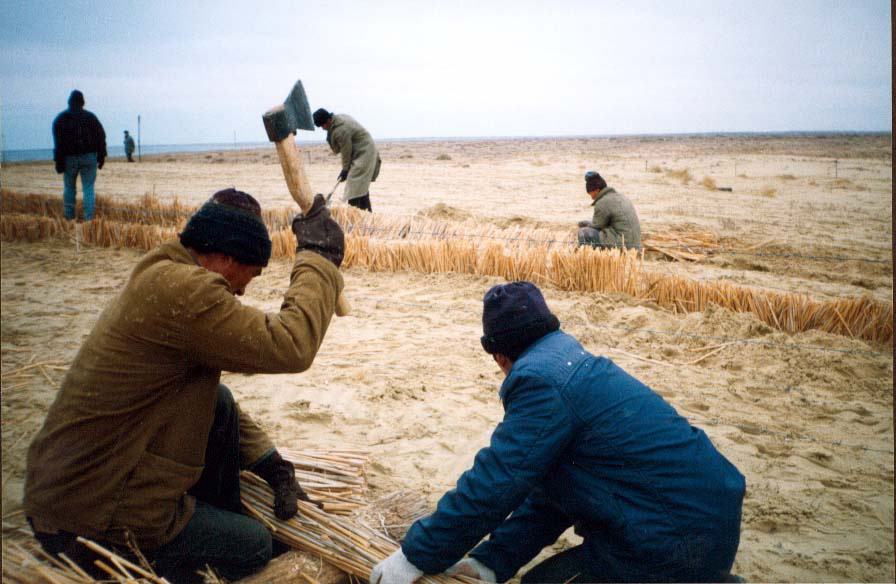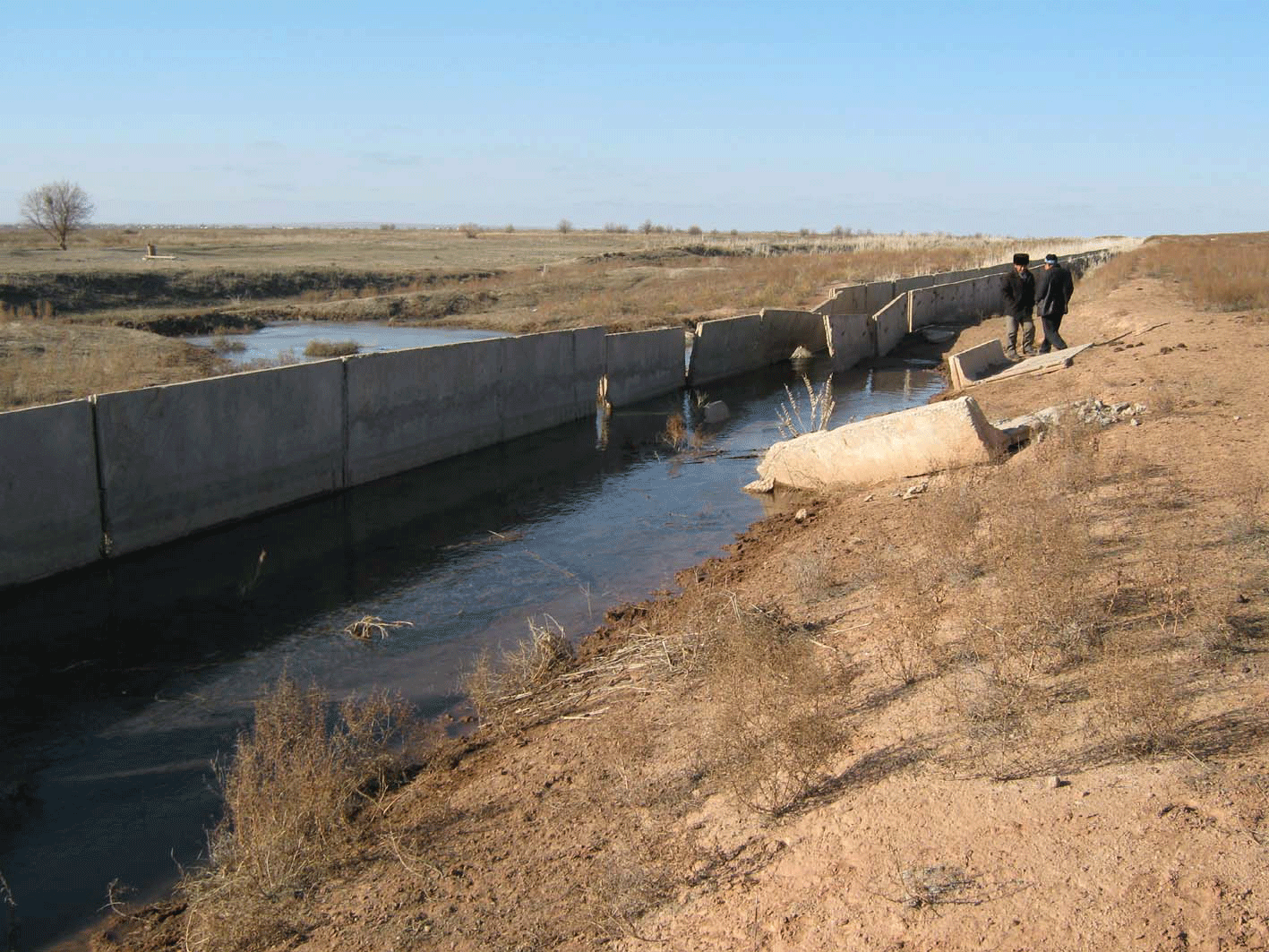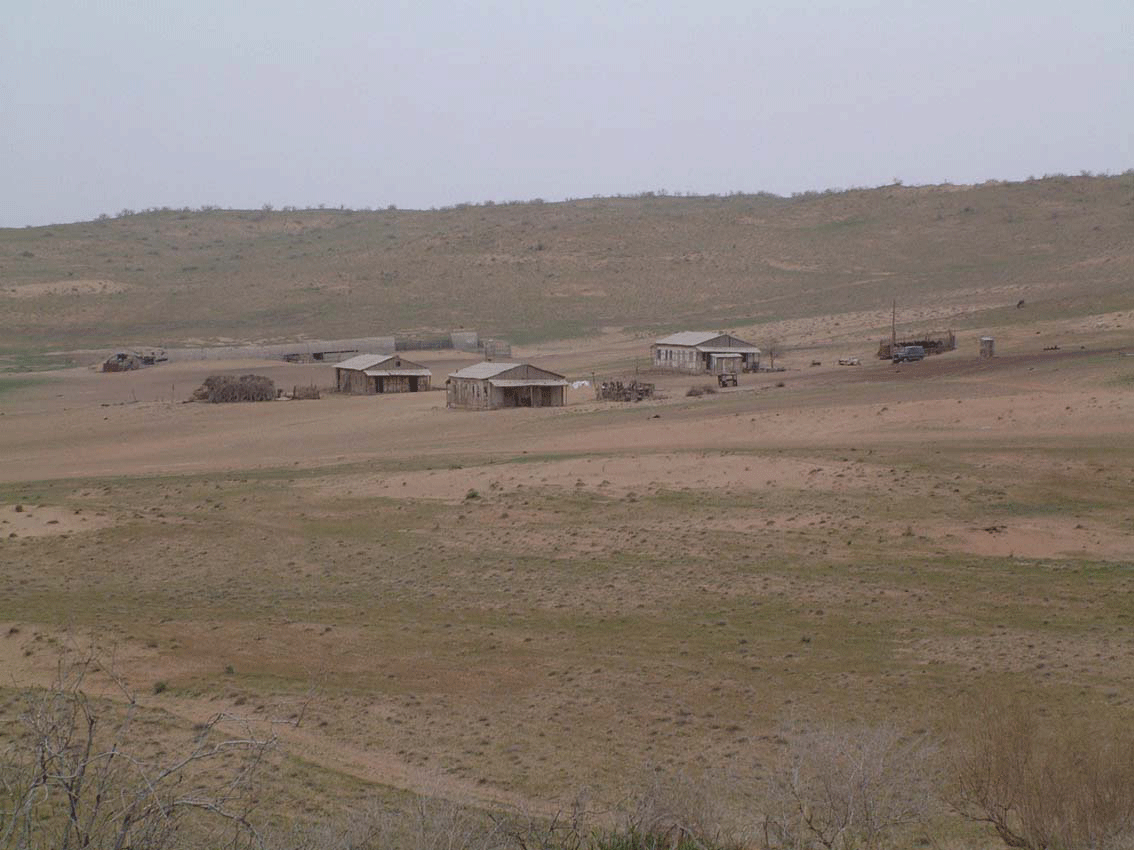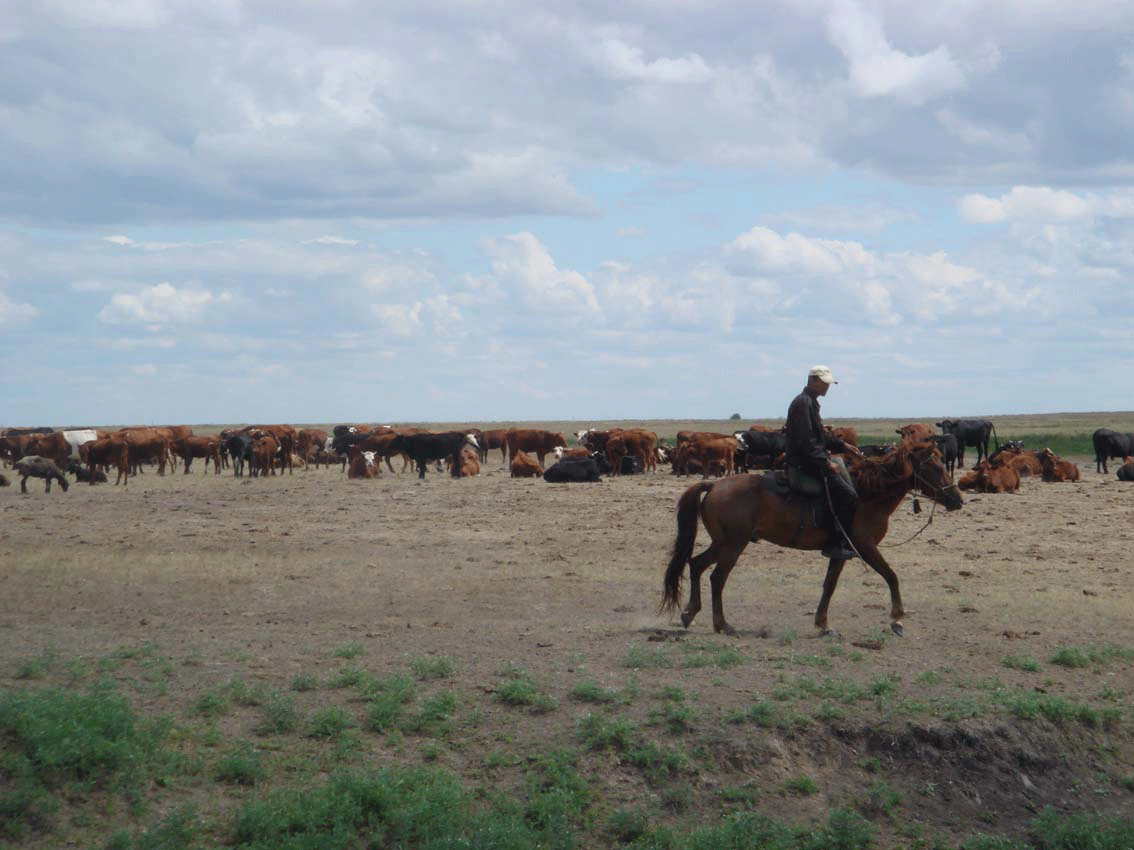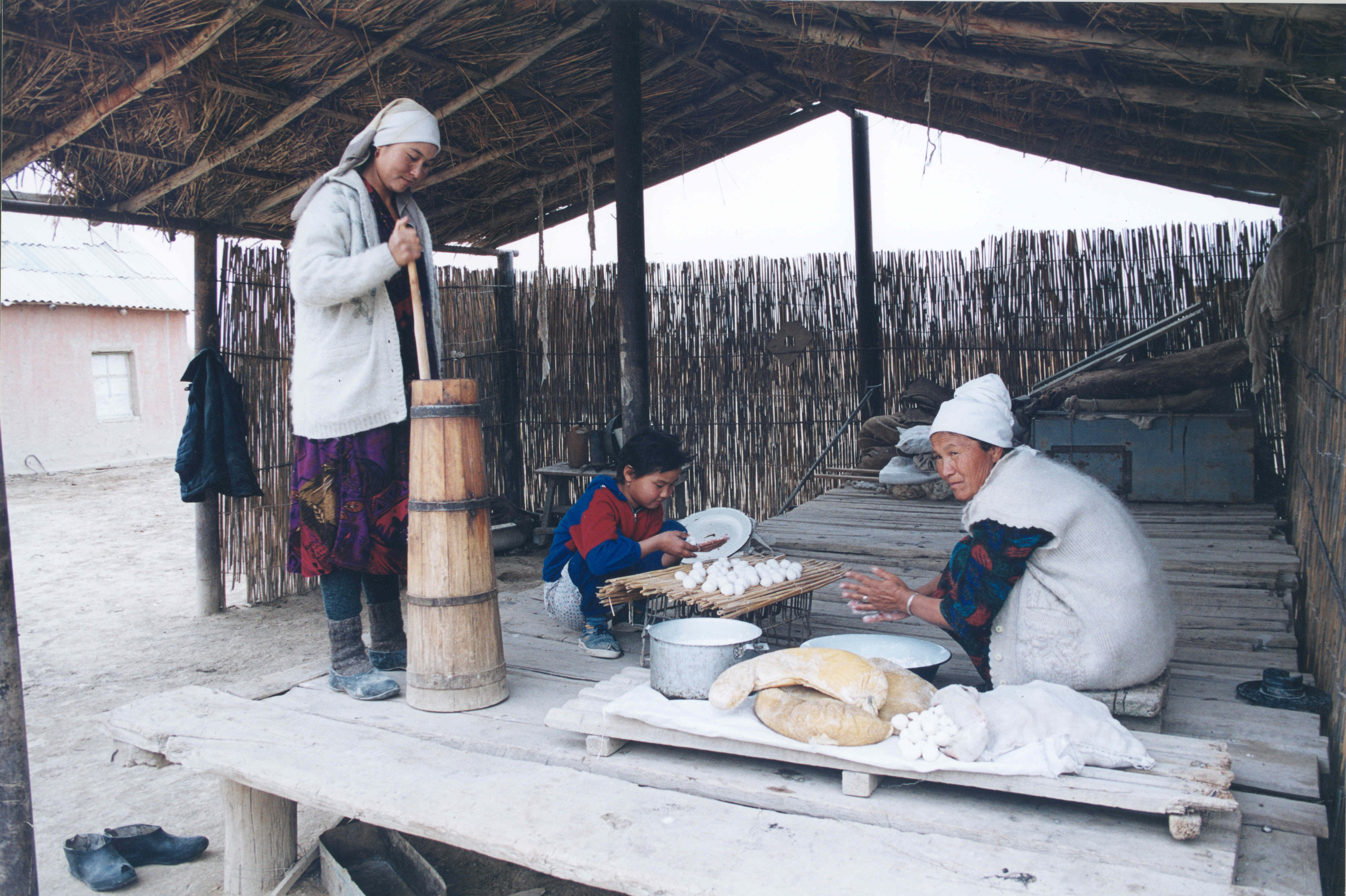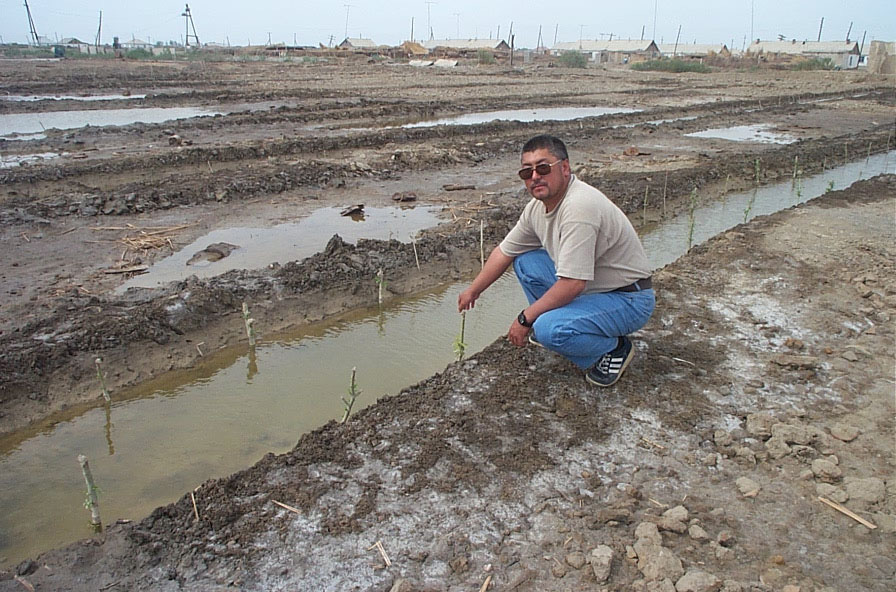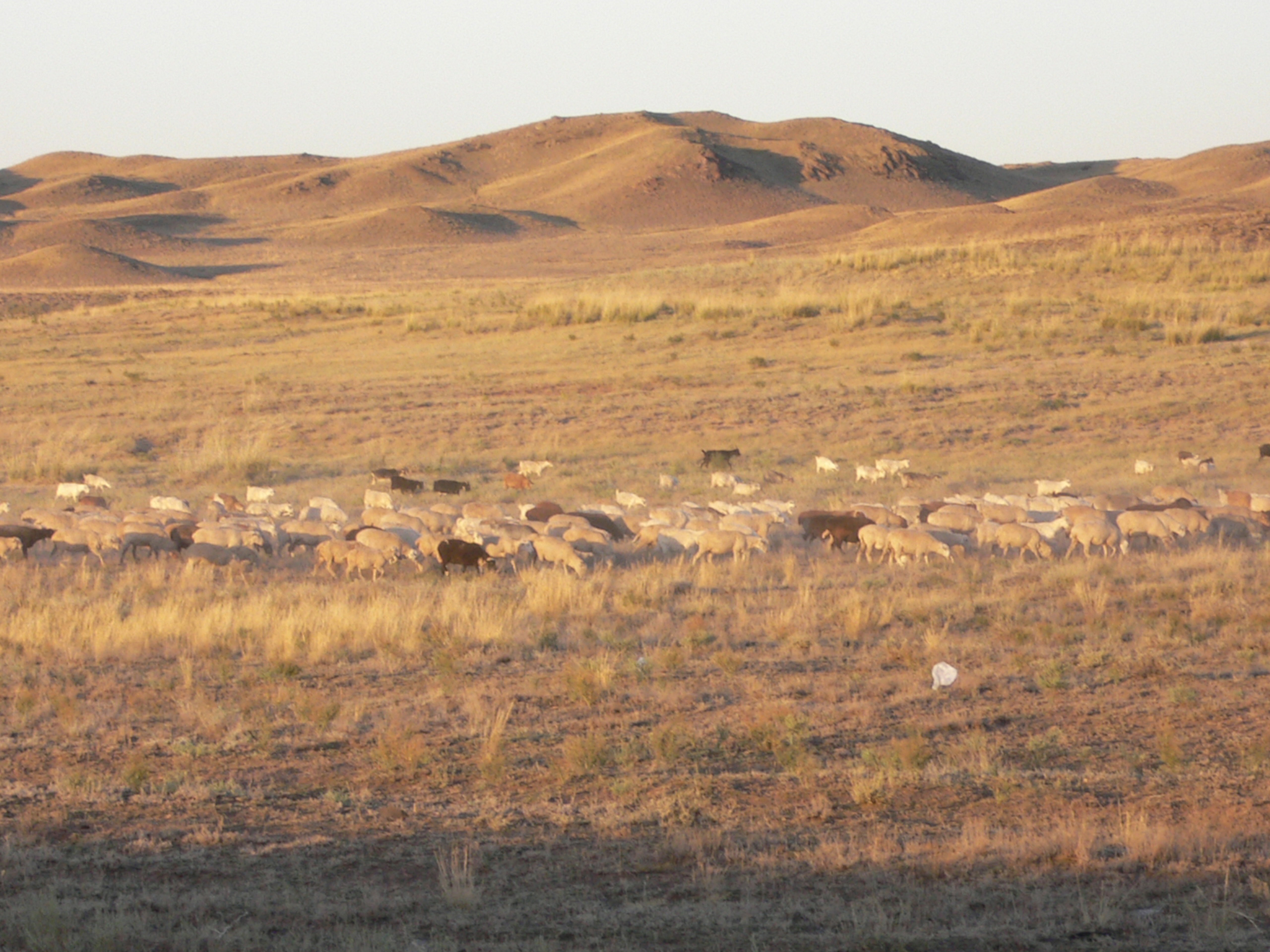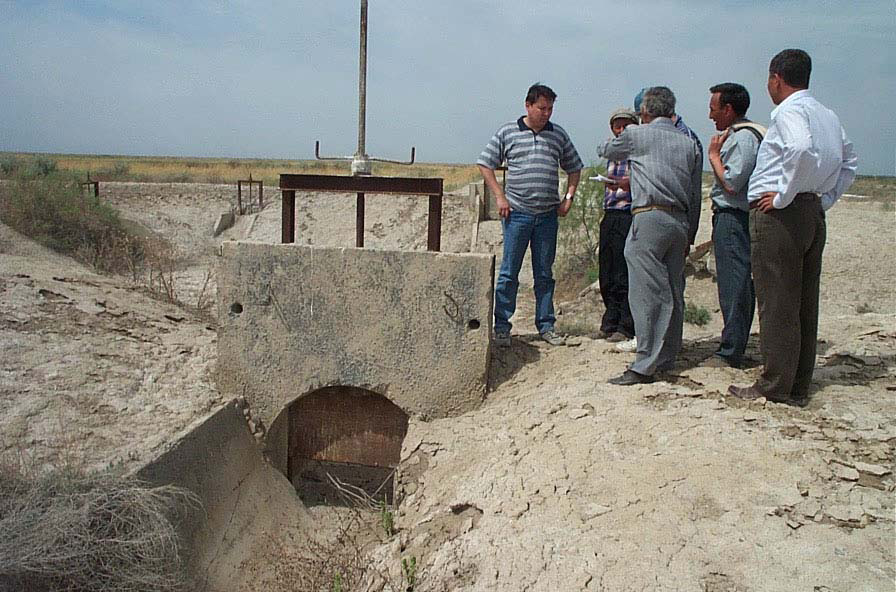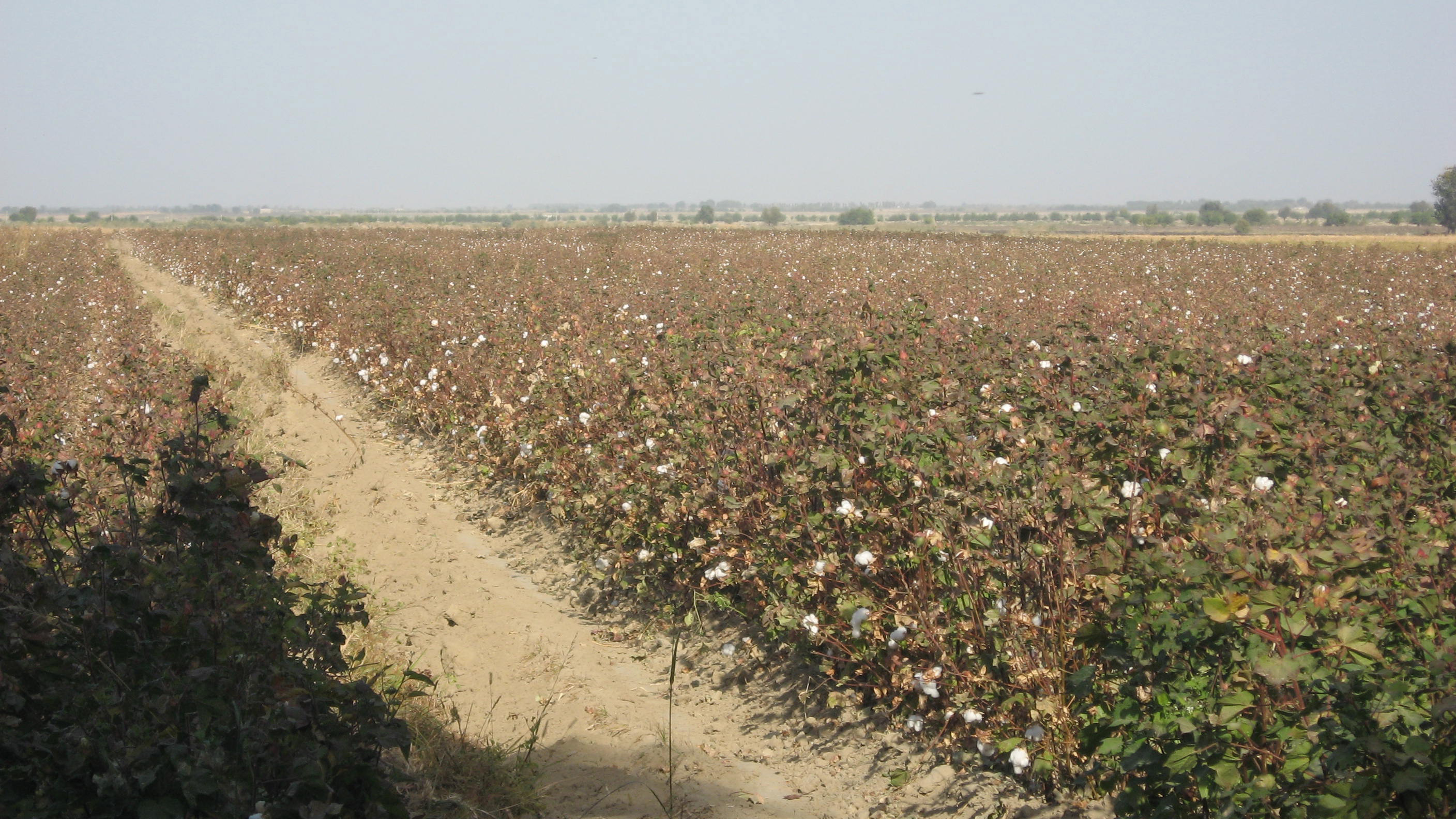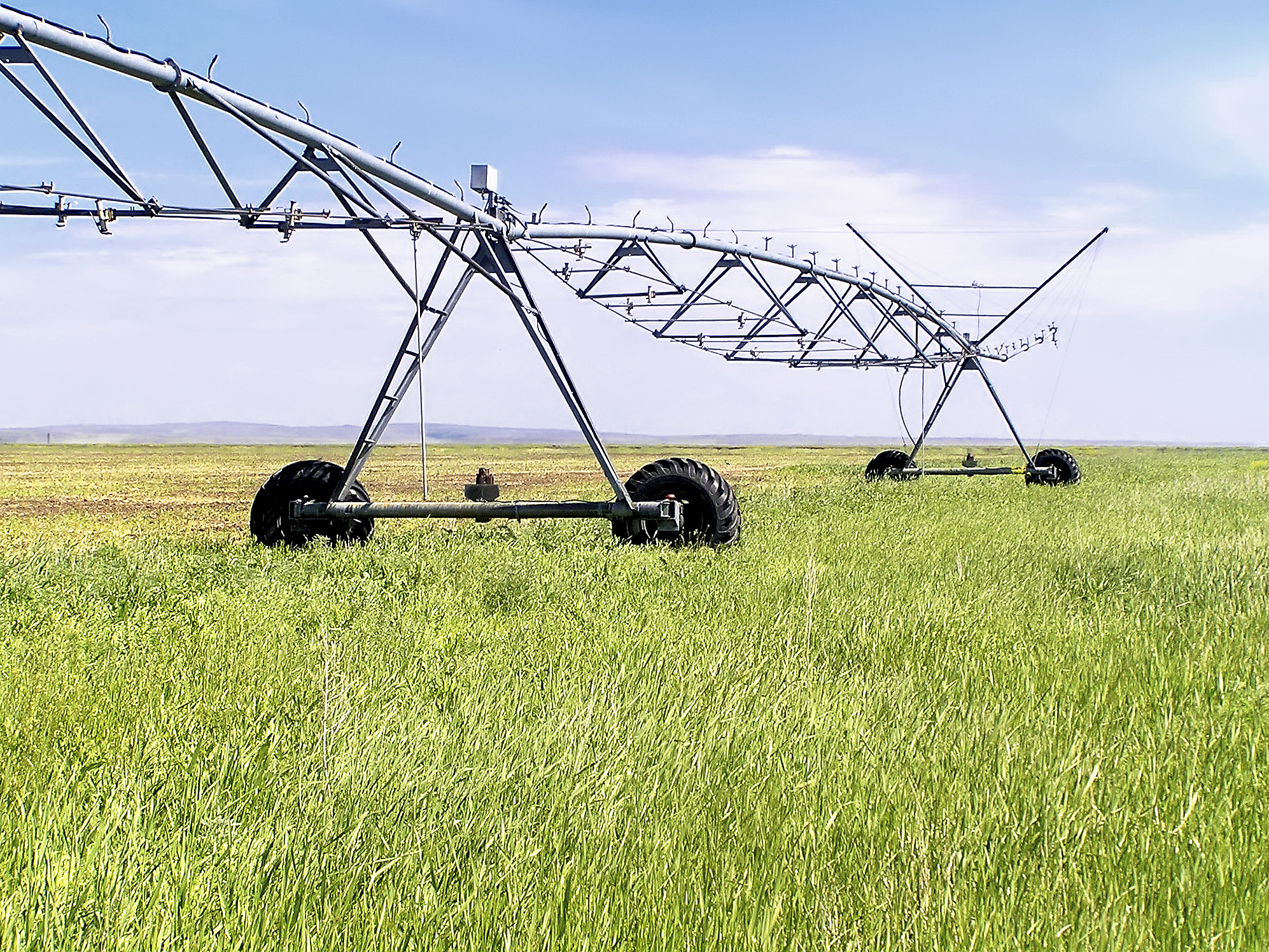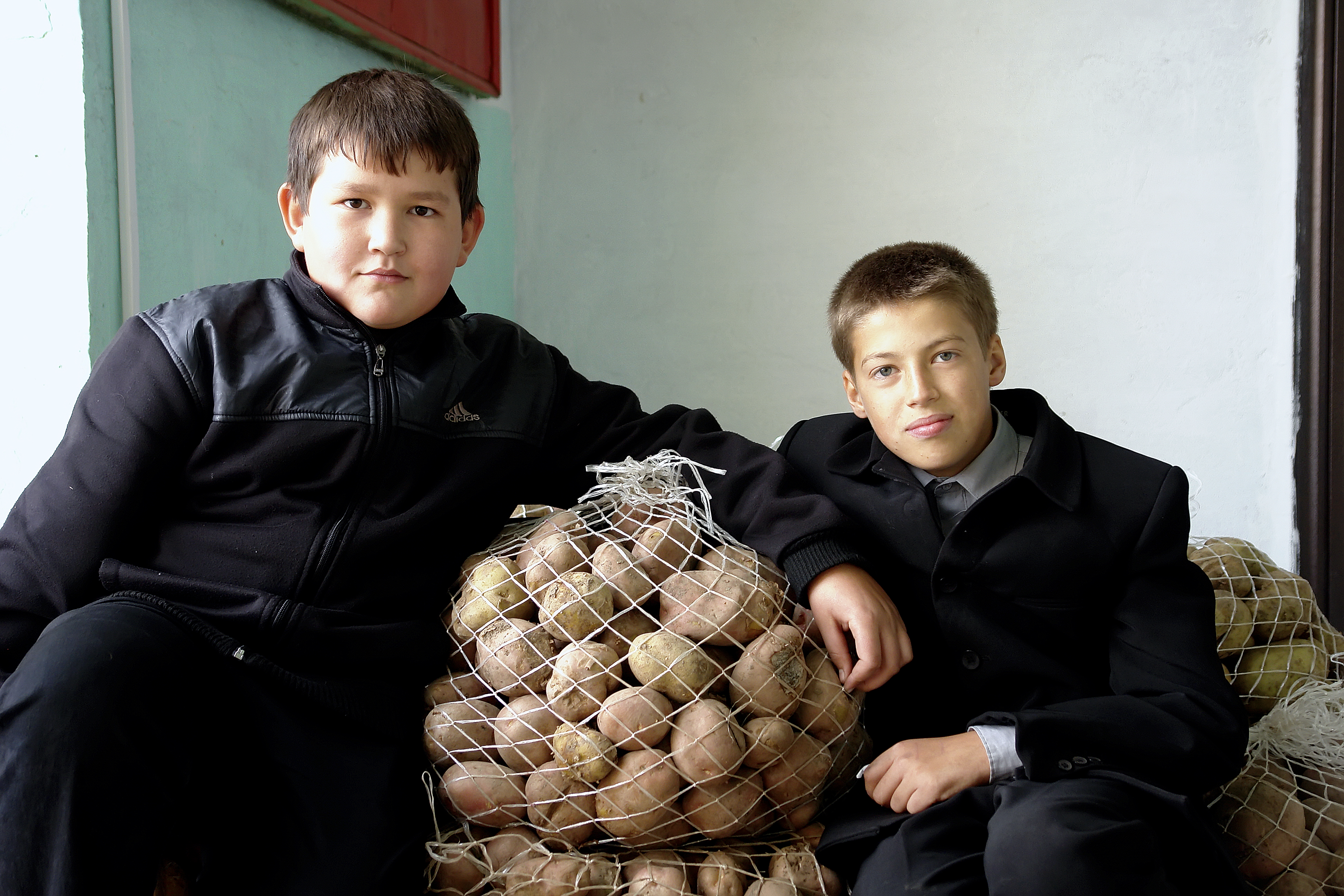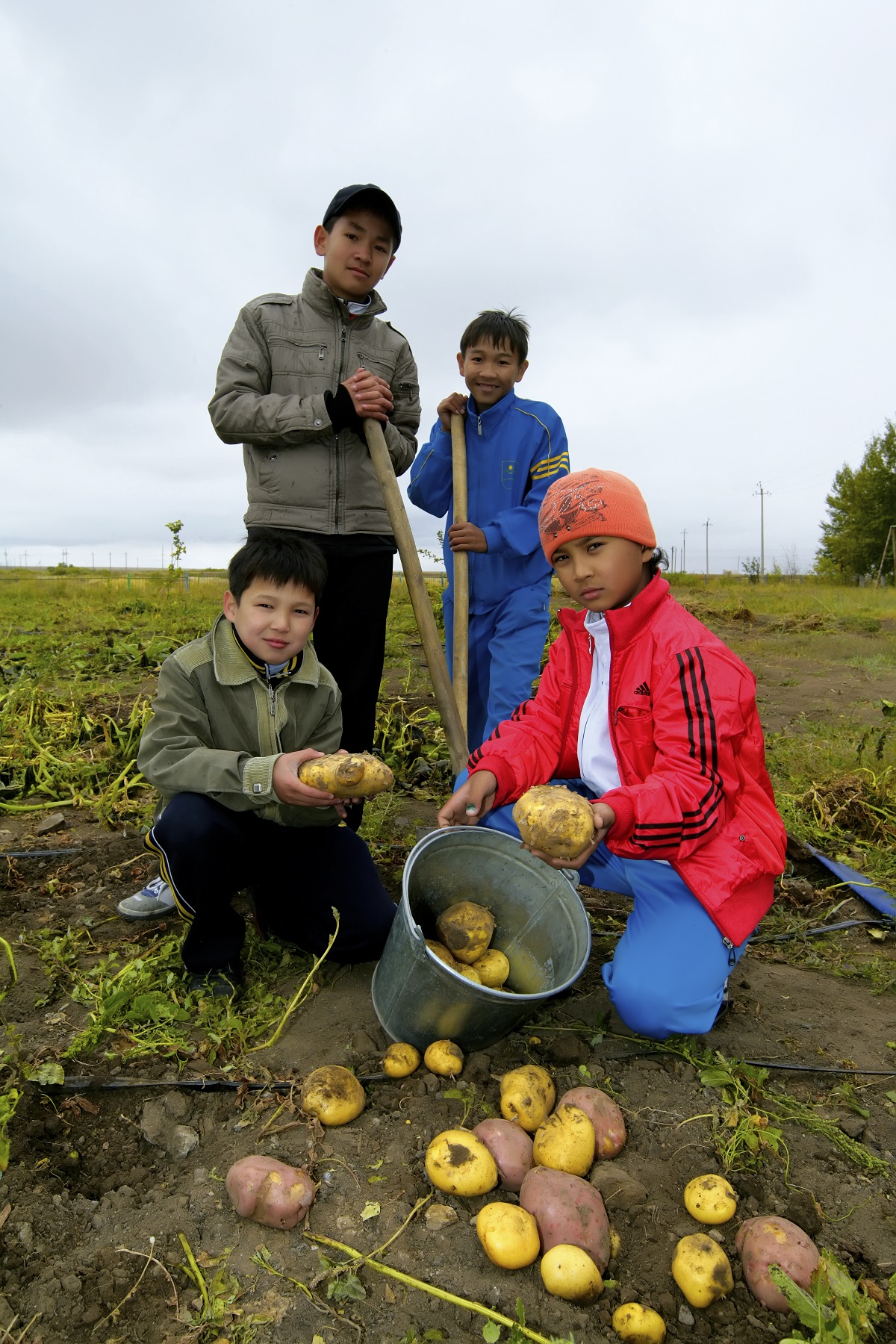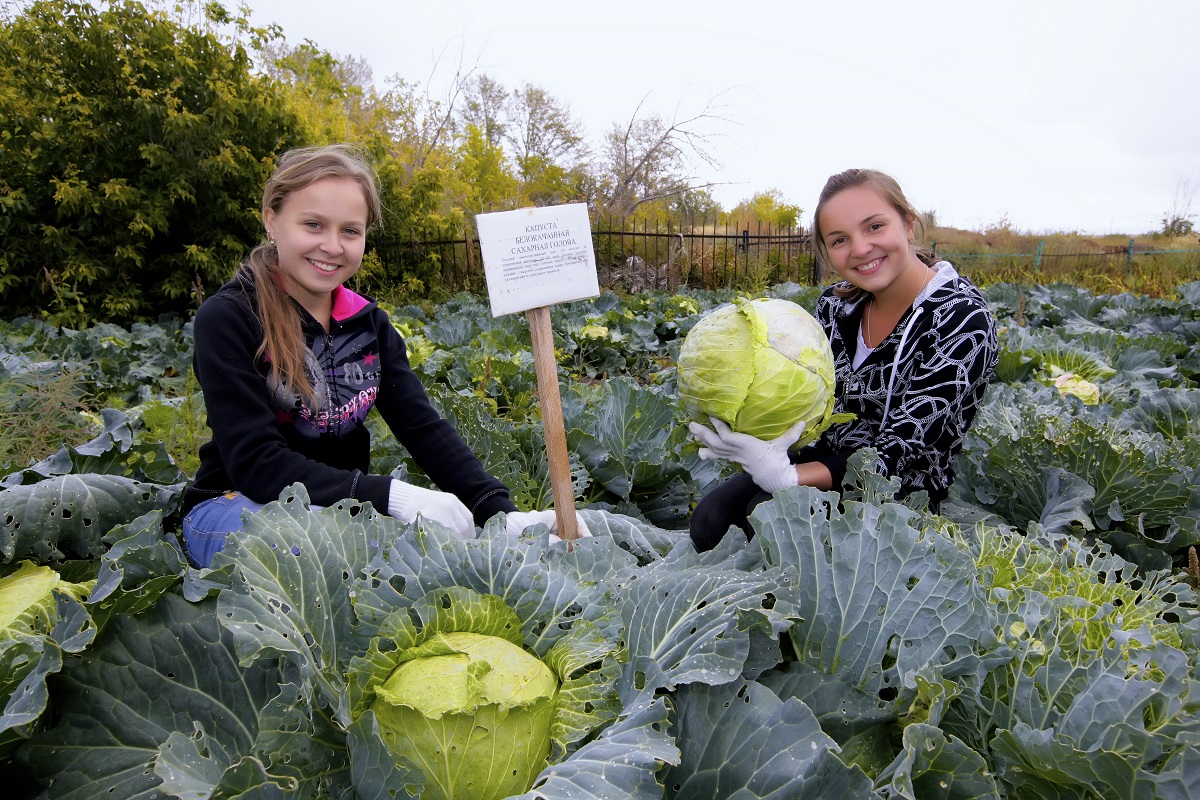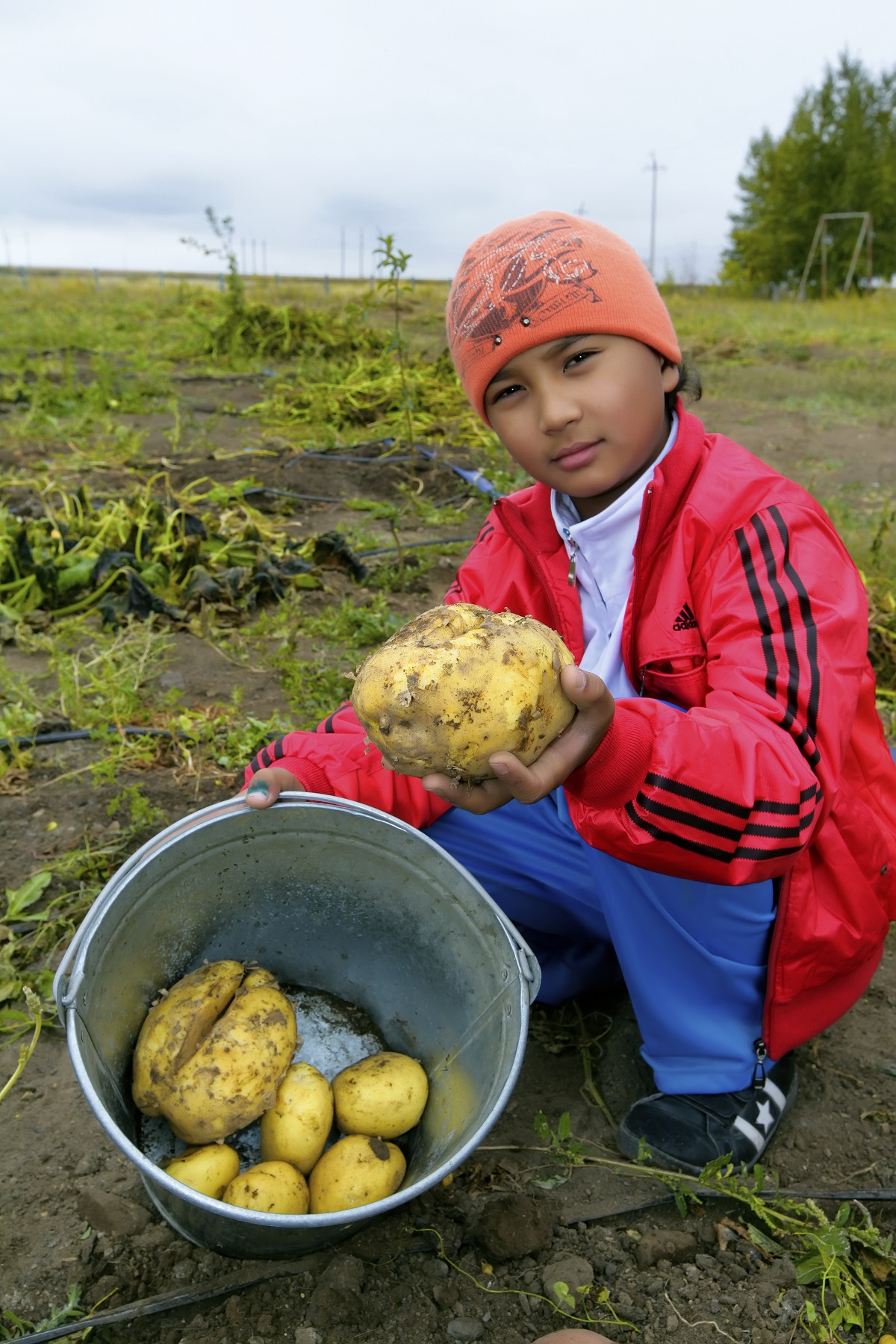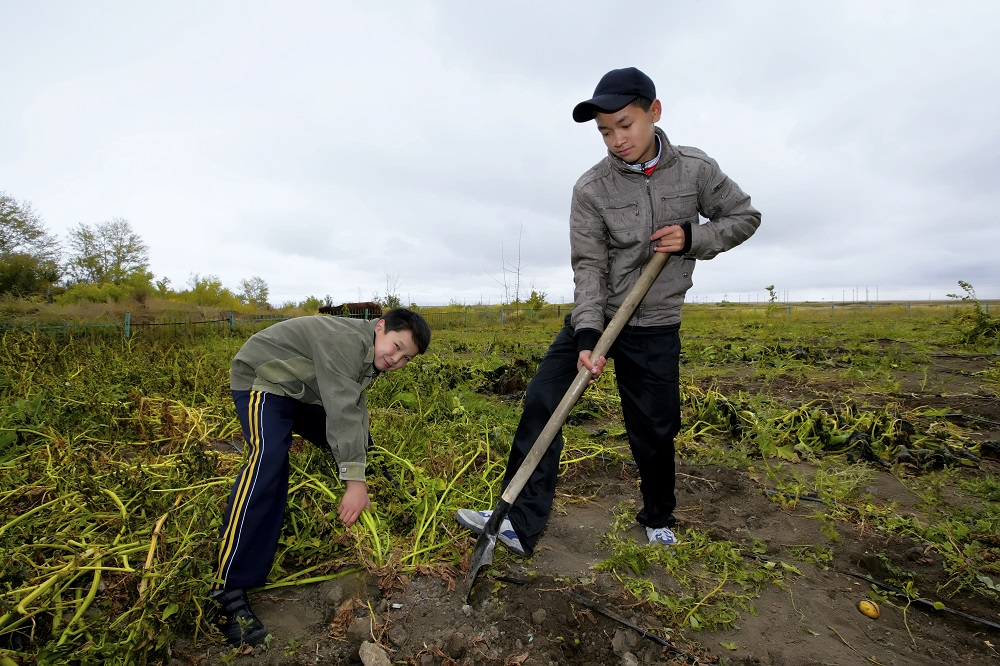Community-Based Adaptation: Kazakhstan
Project Overview
While Kazakhstan has a rapidly growing economy, farmers and pastoralists outside of the main urban centers face significant climate change risks to their livelihoods stemming from increased aridity. A combination of rising temperatures, declining average rainfall, and regional deglaciation threaten to cause:
- Increased drought risk in rainfed farmlands
- Increased salinization risk in irrigated farmlands
- Increased erosion risks in both farmlands and rangelands
- Declining rangeland water resources, leading to overstocking and erosion around remaining water resources
- Decreased habitat for native fauna
Community-Based Adaptation in Kazakhstan will work with communities to integrate climate change concerns into sustainable rangeland and agricultural management practices, and work with local water managers to integrate climate change concerns into irrigation regimes for climate-resilient and sustainable agriculture. Activities will be guided by the Kazakhstan CBA Country Programme Strategy.
The Government of Switzerland co-finances six of the CBA projects in Kazakhstan that focus on land degradation and water scarcity. The partnership began in November 2009.
The CBA Kazakhstan portfolio consists of ten (10) projects:
1. Reducing Vulnerability to Declining Water Supplies in Burevestnik
2. Forest Protection Belts to Combat Increasing Aridity in Shyrkyn Village
3. Sustainable Water and Land Management in South Kazakhstan Under Increased Aridity
4. Demonstrating Adaptive Land Management in Priozernoye
5. Climate-Resilient Horse Production in Kargaly Village
6. Climate-Resilient Pasture and Livestock Management in Zhangeldy Village
7. Adaptation to Increased Aridity through Climate-Resilient Agro-Silvo-Pastoralism Using Sauxal
8. Adapting Grazing Stock-Raising in Lepsy Village
9. Adapting Farming Practices to Increasing Temperatures and Aridity in Akmola Oblast
10. Autumn/Winter Irrigation as Adaptive Mechanism for Water Resources
* Kazakhstan is one of ten (10) countries implementing projects as part of UNDP's "Community-Based Adaptation" programme. *
Project Details
Kazakhstan is a semiarid to arid country with a temperate climate, facing significant desiccation in the face of climate change, and significant exacerbation of baseline (non-climate) pressures. Kazakhstan’s national communications to the UNFCCC indicate that climate change scenarios for Kazakhstan project an increase in average temperature (approximately +1.4 by 2030 to +4.6 by 2085), and northward migration of humidity zones by as much as 450km. This increasing aridity threatens to significantly decrease the resilience of Kazakhstan’s ecosystems to land degradation pressures, constituting both a considerable threat to the natural environment, as well as to national development and poverty alleviation targets.
Climate change impacts are expected to exacerbate existing land degradation pressures, by reducing ecosystem resilience to non-climate drivers of land degradation, while also contributing towards land degradation directly through desiccation and increased wind and water erosion (see section d, “baseline-additionally reasoning”). Land degradation already had significant adverse impact on rural communities, whose livelihoods are dependant on agriculture and livestock production. Climate change will increase the severity and geographic extent of land degradation pressures, threatening these livelihoods further (INC 2008).
The UNDP Community Based Adaptation (CBA) Programme in Kazakhstan will work to reduce the climate change-induced risks on Kazakhstan’s land resources, by developing local capacity and introducing new techniques for climate-resilient sustainable land management. This will be achieved by implementing 8 to 12 demonstration projects that will enhance community and/or ecosystem resilience to climate change impacts. These projects will also contribute towards securing climate change resilient global environmental benefits (GEB), focusing on sustainable land management. Lessons from projects on best practices will be shared for replication by national development institutions such as the 'Kazyna' Sustainable Development Fund, Small Businesses Support Fund, as well as others within and outside of Kazakhstan.
The CBA programme draws on priority adaptation-related identified through ongoing work on Kazakhstan’s Second National Communication and other climate change-related programmes, enabling access to climate change and adaptation information as well as policy processes, particularly within the agricultural sector. The Programme will be implemented in Kazakhstan by UNDP using the mechanism of the UNDP/Global Environment Facility’s Small Grants Programme (UNDP-GEF/SGP). The work will be conducted in alignment with the GEF/SGP country programme and in accordance with the UNDP’s corporate guidelines on climate change adaptation. The CBA projects will be singled out as an individual project portfolio independent of the GEF/SGP regular grant portfolio with implications for independent and separate co-financing requirements.
Objectives and Impact Indicators
The objective of the CBA programme in Kazakhstan is to implement the principles of sustainable community management of natural resources in the face of climate change.
To assess the achievement of the above objective, the following four UNDP Climate Change Adaptation indicators (TA6) will be measured:
- Number of measures (implemented methodologies/ approaches) deployed as part of climate change resilient sustainable resource management activities;
- Success of sustainable resource management interventions in securing livelihoods and protecting resources (QBS);
- Number of stakeholders (e.g. families/households) benefiting from climate change resilient sustainable resource management activities;
- Number of local and national SLM programmes/policies that are revised to reflect lessons learnt/ best practices from the CBA programme.
Key Results and Outputs
The objective of the CBA programme in Kazakhstan is to implement the principles of sustainable community management of natural resources in the face of climate change.
To assess the achievement of the above objective, the following four UNDP Climate Change Adaptation indicators (TA6) will be measured:
- Number of measures (implemented methodologies/ approaches) deployed as part of climate change resilient sustainable resource management activities;
- Success of sustainable resource management interventions in securing livelihoods and protecting resources (QBS);
- Number of stakeholders (e.g. families/households) benefiting from climate change resilient sustainable resource management activities;
- Number of local and national SLM programmes/policies that are revised to reflect lessons learnt/ best practices from the CBA programme.
Reports and Publications
Brochures, Posters, Communications Products
Community-Based Adaptation: Climate Change in Action brochure (2009)
Community-Based Adaptation: Climate Change in Action brochure (Jan. 2010)
Community-Based Adaptation to Climate Change Brochure (July 2010)
Annual Reports
Case Study
Adaptation Bulletin
ProDocs
PIFs
Project Brief / Fact Sheet
Assessments and Background Documents
Monitoring and Evaluation
Monitoring and evaluation for community-based adaptation is a new field, and the CBA project is piloting innovative approaches to evaluating the success of locally-driven adaptation projects, and generating lessons to inform ongoing practice.
Key considerations in M&E for CBA include:
- Grounding M&E in the local context: M&E for CBA should avoid overly rigid frameworks, recognizing community heterogeneity and maintaining local relevance
- Capturing global lessons from local projects: CBA projects are highly contextualized, but lessons generated should be relevant to stakeholders globally
- Incorporation of both quantitative and qualitative indicators: to ground projects in tangible changes that can be objectively evaluated, and to capture lessons and case studies for global dissemination
To these ends, the CBA project uses three indicator systems: the Vulnerability Reduction Assessment, the Small Grants Programme Impact Assessment System, and the UNDP Climate Change Adaptation Indicator Framework.
The Vulnerability Reduction Assessment (VRA)
The VRA is a question-based approach with the following aims:
- To make M&E responsive to community priorities
- To use M&E to make projects more accountable to local priorities
- To make M&E capture community ideas and local knowledge
- To gather community-level feedback to guide ongoing project management
- To generate qualitative information
- To capture lessons on specific issues within community-based adaptation
- To generate case studies highlighting adaptation projects
The VRA follows UNDP's Adaptation Policy Framework, and is measured in a series of meetings with local community stakeholders. In these meetings, locally-tailored questions based on standard VRA questions/indicators are posed, and the community assigns a numerical score on a 1-10 scale for each question. Progress is evaluated through changes in scores over the course of implementation, as well as through qualitative data collected in community discussions surrounding the exercise.
UNDP has developed a Users Guide to the VRA (Espanol) (Francais) as a tool to assist practitioners to conceptualize and execute VRA measurements in the context of CBA projects.
The SGP Impact Assessment System (IAS)
The CBA, being a project of the GEF Strategic Priority on Adaptation, aims to increase the resilience of ecosystems and communities to the impacts of climate change, generating global environmental benefits, and increasing their resilience in the face of climate change impacts. To this end, the CBA projects use the SGP's impact assessment system for monitoring achievements in GEF focal areas (focusing primarily on biodiversity and sustainable land management).
The IAS is composed of a number of quantitative indicators which track biophysical ecosystem indicators, as well as policy impact, capacity development and awareness-building.
UNDP Climate Change Adaptation Indicator Framework
CBA projects also track quantitative indicators from UNDP's adaptation indicator framework, corresponding to the thematic area on natural resources management. More information on UNDP's indicator framework can be found on the UNDP climate change adaptation monitoring and evaluation website.
* This description applies to all projects implemented through UNDP's Community-Based Adaptation programme. Specific details on this project's M&E will be included here as they become available. *
